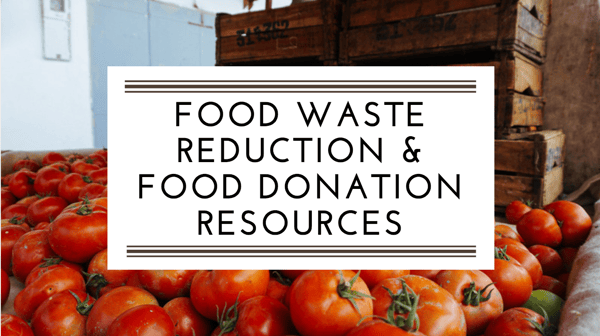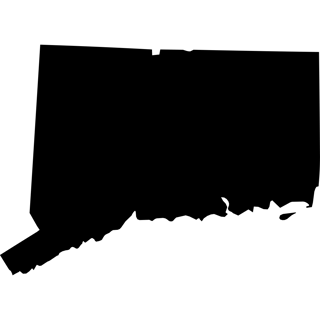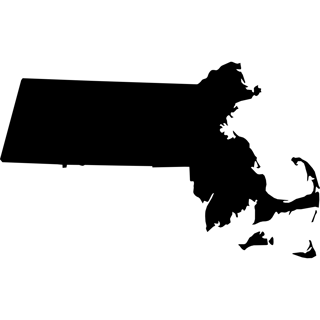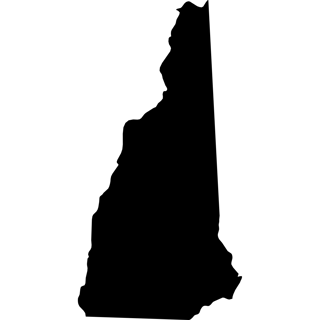
Currently five states have food waste bans, and with four of the five states located in New England (Massachusetts, Rhode Island, Connecticut, and Vermont), the region is at the forefront of innovative legislation.
Despite having the highest concentration of food waste bans in the U.S., there’s still a lot of work to be done in New England in terms of education about federal enhanced tax deductions and liability protection.
Resources for New England Food Businesses

Are you an operations or sustainability professional working for a New England food business and looking to understand how this impacts you and your organization? You can find state-specific information on best practices for food donation, legal information on your state’s waste ban, how to find local food banks and rescue programs, and toolkits on managing organic waste and composting.
Read More: Cities Working Towards Zero Waste
Connecticut

- CT DEEP Food Waste Reduction and Recovery. A comprehensive resource for Connecticut food businesses, including information about local food banks and rescue programs, toolkits, case studies, webinars, and EPA resources.
- Harvard Food Law & Policy Clinic Legal Fact Sheets for Connecticut. Similar to the legal fact sheets developed for Massachusetts, HFLPC has also created documentation specific to Connecticut State Law. See below:
Read more: Decreasing Wasted Food in Connecticut (Presentation)
Maine

- Food Resource Packet. A guide to donations from the Good Shepherd Food Bank, which gives information about food that’s most needed, liability protection, and benefits of donating food.
- Natural Resources Council of Maine. For an overview of the Food Recovery Hierarchy and a list of Maine-based gleaning networks and food rescue organizations, visit the NRCM’s page on food waste.
- Guide to Recovering and Composting Organics in Maine. From the Maine Department of Environmental Protection, learn about four common composting systems used in Maine, including illustrations of compost sites and a troubleshooting table.
Read more: Maine Congresswoman Chellie Pingree Introduces Food Date Labeling Act
Massachusetts

- RecyclingWorks. RecyclingWorks in Massachusetts is a recycling assistance program that helps businesses and institutions maximize recycling, reuse, and food waste diversion opportunities. They specifically have information on best practices for food donation. Here’s a great starting point to learn about Best Management Practices for Donating Food from December 2015.
- Commercial Food Waste Disposal Ban. Since October 2014, a Massachusetts Department of Environmental Protection ban took effect stating that businesses and organizations cannot throw away one ton or more per week of commercial organic waste. Read about what your organization needs to know. For more information about the waste ban in Massachusetts, check out this webinar highlighting the one-year milestone of the ban and its impact.
- Harvard Food Law & Policy Clinic Legal Fact Sheets for Massachusetts. The purpose of these legal guides is to answer some of the most common legal questions raised by stakeholders regarding food donation and food recovery. Find fact sheets on date labeling, tax incentives, and liability protection.
Read more: Mapping the Largest Sources of Food Waste in Massachusetts
New Hampshire
- New Hampshire Food Pantries. Seacoast Eat Local’s list of food pantries throughout New Hampshire is arranged alphabetically by town and shows food pantries that accept both fresh foods and nonperishable goods.
- Best Management Practices for NH Solid Waste Facilities: Food Waste Composting. From NH’s Department of Environmental Services, this resource provides composting terminology and definitions, plus tips, problems & solutions, and visuals to guide your composting efforts.
- NH Food Alliance. This statewide collaboration working towards improving New Hampshire’s food system was developed out of The Sustainability Institute at the University of New Hampshire. Their resources page includes an annual gleaning report, a commercial kitchen feasibility study, information about local food distribution, and NH’s Roadmap to End Childhood Hunger.
Read more: NH Food Bank To Launch Food Processing Plant
Rhode Island

- Food Waste Recycling Requirements. In June 2014, Rhode Island passed a food waste ban to take effect on January 1, 2016. Rhode Island’s food waste ban applies only to organic waste producing institutions generating more than two tons per week. Take a look at the requirements if you fall into one of the following categories: commercial wholesaler or distributors, industrial food manufacturers or processors, supermarkets, resorts or conference centers, banquet halls, restaurants, educational or religious institutions, research institutions, military installations, prison corporations, hospitals or other medical care institutions, and casinos.
- Food: Too Good to Waste – Community Results and Lessons Learned (Webinar). This webinar from the EPA’s Sustainable Materials Management Web Academy highlights the Rhode Island food system, with examples of successful food waste reduction from the Rhode Island Food Policy Council.
- Harvard Food Law & Policy Clinic Legal Fact Sheets for Rhode Island. Similar to the legal fact sheets developed for Massachusetts and Connecticut, HFLPC has also created documentation specific to Rhode Island. See below:
Read more: RI’s Food Plan to Address Compost and Access
Vermont

- VT DEC Food Donation in Vermont. Vermont enacted a Universal Recycling Law in 2012. Learn more about why you should donate surplus food and what types of food can be donated.
- Feed the People — Increase in Food Rescued in Vermont (Webinar). Through innovative partnerships and collaborative projects Vermont has seen a 30% increase in food rescue over the past year with 2016 estimates expected to be even higher. Watch the Sustainable Materials Management (SMM) Web Academy Webinar from the EPA for details.
- Donation Guidance for Businesses & Institutions. The Agency of Natural Resources has partnered with the Vermont Department of Health and the Agency of Education to develop guidance for implementing or expanding a food donation program at a Vermont business or intuition.
- Universal Recycling Materials Management Map. This map from the Vermont Agency of Natural Resources shows facilities that accept various materials for food rescue, recycling, composting, and disposal.
Read more: Universal Recycling Law Boosts Fresh Food Donations
General Resources
- Tax Benefits for Food Donations
- Comprehensive Guidelines for Food Recovery Programs
- A Beginner’s Guide to Food Waste
- Liability Protection for Food Donations
- Sustainable America’s Food Rescue Database
- A Guide To Conducting and Analyzing a Food Waste Assessment
- Waste Reduction Model (WARM)
- Northeast Resource Recovery Association
Read more: New England Institutions Recognized for Diverting Food Waste
.png?width=250&name=SpoilerAlert_WhiteLogo_LeftStacked%20(7).png)

